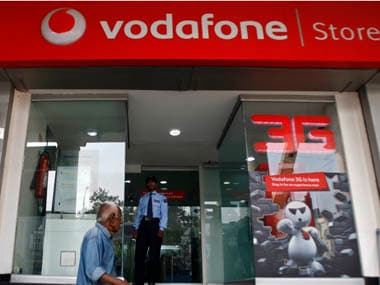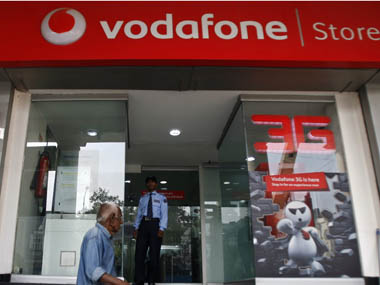The Modi government’s decision to not appeal against the Bombay High Court verdict in Vodafone transfer pricing case is the worst act of capitulation to the MNC lobby. Lest there is a misunderstanding, it would be necessary to remind the readers that this was not the case involving transfer of controlling interest in Hutch from Hutchison Hong Kong to Vodafone UK through transfer of shares of a Camay Island based company that called the shots in the Indian operating company. In that case the Indian government courted infamy by making a retrospective amendment to overcome the negative verdict of the Supreme Court after discerning that had there been an express provision in the statute, the Apex Court would have ruled in favor of the Revenue. The tax involved was about Rs 11,000 crore. The UPA government under the stewardship of Pranab Mukherjee in the ministry of finance was roundly and rightly criticized for making a retrospective amendment to make up for lack of resilience in the income tax law. The Modi government would have covered itself with glory had it withdrawn the stealthy retrospective amendment which any day is reprehensible. What it has instead done is to sheepishly backtrack from a case where it had both a solid moral and legal ground. [caption id=“attachment_2060349” align=“alignleft” width=“380”]
 Reuters[/caption] For, Vodafone II, as it were, was about transfer pricing. MNCs the world over, use subterfuges and sleight of hand accounting to reduce their tax bills. Vodafone and Shell were naturally proceeded against by the income tax administration when it smelled something fishy in these companies helping themselves to shares of their Indian operating subsidiaries for a song. The department rightly alleged that these companies instead of booking profits on their bread and butter applications that would have exposed them to income tax in India chose to do so through allotment of shares at a huge concession. In doing so, they were banking on the courts’ indulgence to their plea that allotment of shares was on capital account. It is unfortunate that the Bombay High Court bought this argument in the Vodafone case firsy and a few days later in Shell’s case because in the process the court ignored the entire chapter on transfer pricing in the income tax law whose main purpose is to arm the Revenue against the wiles and guiles of MNCs. . Yet, the Bombay High chose to set store by the capital transaction alibi predictably and glibly offered by Vodafone and Shell. The Modi government should have set the process of appeal rolling. For what is involved is the very credibility of the transfer pricing regime whose maintainability should have been tested before the Supreme Court. The Supreme Court in Vodafone I rejected the government’s claim on mere technical grounds—lack of specific provision to reach out to transfer of controlling interest consummated in tax havens. No such handicap hamstrung the government in the transfer pricing matter which is what Vodafone II is all about. That it had law by its side that was curiously ignored by the Bombay High Court should have emboldened it to proceed with appeal. Instead it has chosen to smoke the peace pipe with the MNC lobby in an act of utter pusillanimity. The message that goes out is depressing—the Indian government would not defend the laws made by its own supreme legislative body, the Parliament. The government lacks the stomach for a good fight and the Indian government might just as well throw in the towel in its much touted fight against black money stashed away abroad by Indians. If it can chicken out in the fight against MNCs operating on its own turf, it would have much less inclination and resources to fight against the Swiss government on the Swiss government’s turf. Kejriwal might just as well go to town with this fresh ammunition offered on a platter by the Modi government in the run up to the Delhi elections.
Reuters[/caption] For, Vodafone II, as it were, was about transfer pricing. MNCs the world over, use subterfuges and sleight of hand accounting to reduce their tax bills. Vodafone and Shell were naturally proceeded against by the income tax administration when it smelled something fishy in these companies helping themselves to shares of their Indian operating subsidiaries for a song. The department rightly alleged that these companies instead of booking profits on their bread and butter applications that would have exposed them to income tax in India chose to do so through allotment of shares at a huge concession. In doing so, they were banking on the courts’ indulgence to their plea that allotment of shares was on capital account. It is unfortunate that the Bombay High Court bought this argument in the Vodafone case firsy and a few days later in Shell’s case because in the process the court ignored the entire chapter on transfer pricing in the income tax law whose main purpose is to arm the Revenue against the wiles and guiles of MNCs. . Yet, the Bombay High chose to set store by the capital transaction alibi predictably and glibly offered by Vodafone and Shell. The Modi government should have set the process of appeal rolling. For what is involved is the very credibility of the transfer pricing regime whose maintainability should have been tested before the Supreme Court. The Supreme Court in Vodafone I rejected the government’s claim on mere technical grounds—lack of specific provision to reach out to transfer of controlling interest consummated in tax havens. No such handicap hamstrung the government in the transfer pricing matter which is what Vodafone II is all about. That it had law by its side that was curiously ignored by the Bombay High Court should have emboldened it to proceed with appeal. Instead it has chosen to smoke the peace pipe with the MNC lobby in an act of utter pusillanimity. The message that goes out is depressing—the Indian government would not defend the laws made by its own supreme legislative body, the Parliament. The government lacks the stomach for a good fight and the Indian government might just as well throw in the towel in its much touted fight against black money stashed away abroad by Indians. If it can chicken out in the fight against MNCs operating on its own turf, it would have much less inclination and resources to fight against the Swiss government on the Swiss government’s turf. Kejriwal might just as well go to town with this fresh ammunition offered on a platter by the Modi government in the run up to the Delhi elections.
Vodafone transfer pricing decision: Why is Modi govt smoking the peace pipe with MNC lobby?
S Murlidharan
• January 29, 2015, 17:42:44 IST
The government lacks the stomach for a good fight and the Indian government might just as well throw in the towel in its much touted fight against black money stashed away abroad by Indians. If it can chicken out in the fight against MNCs operating on its own turf, it would have much less inclination and resources to fight against the Swiss government on the Swiss government’s turf.
Advertisement
)
End of Article